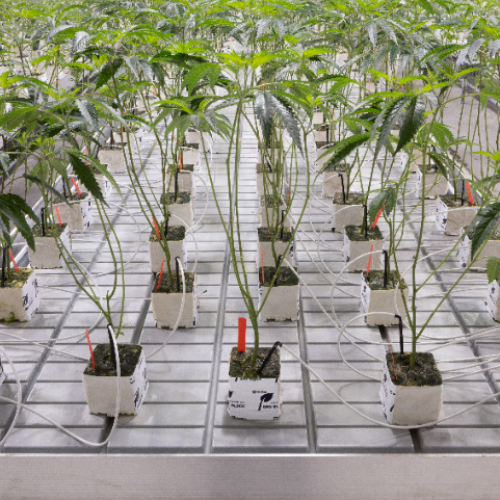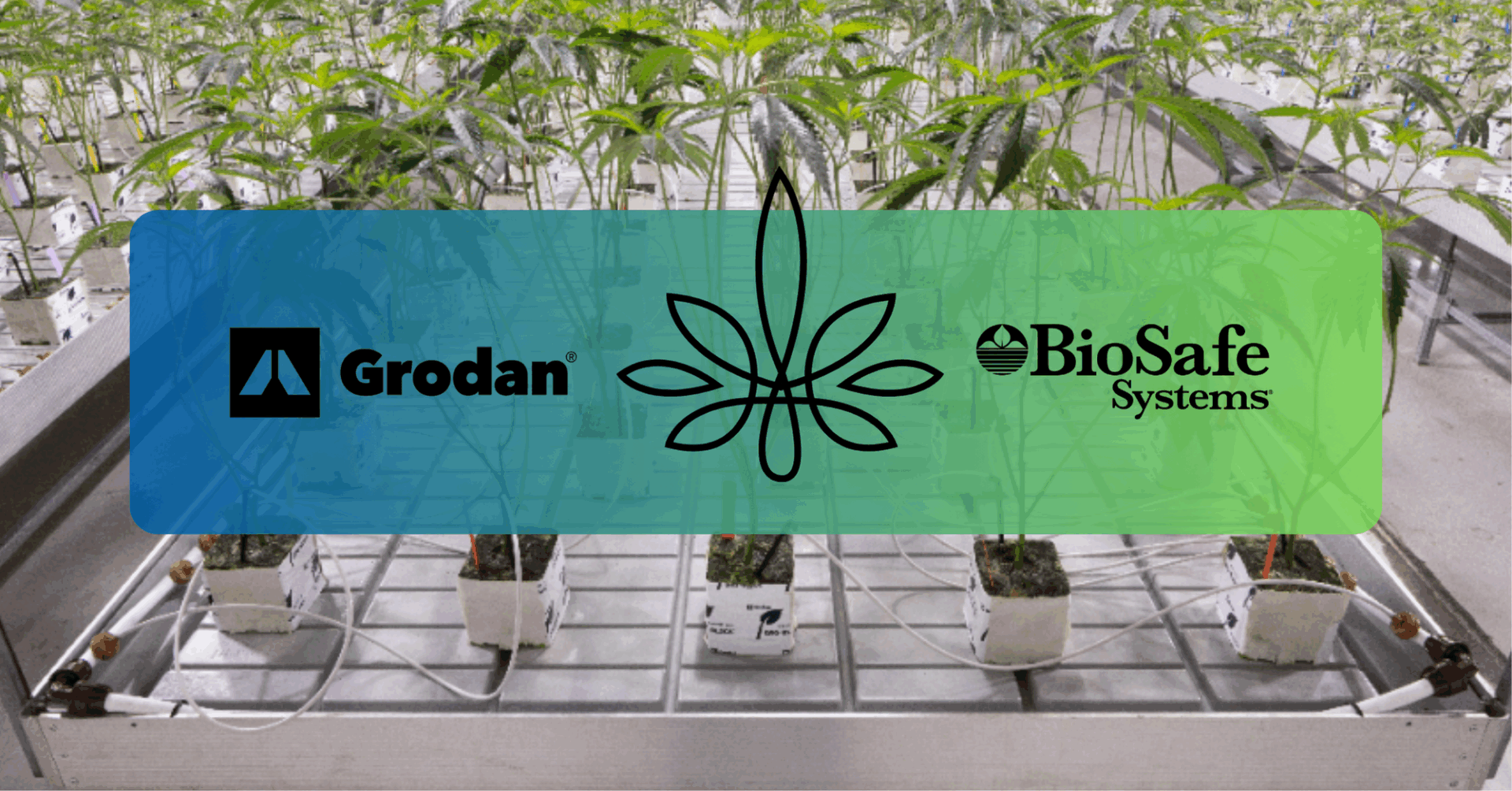BioSafe Systems’ Scientific Program for Consistent, Controlled Cannabis Cultivation
In advanced cannabis cultivation, plant health and productivity start in the root zone. Grodan® stone wool is an advanced mineral fiber substrate designed for optimal crop uniformity and efficient water and nutrient distribution.
This substrate is stable, scalable, and highly controllable, making it an optimal choice for commercial cannabis cultivators. As an inorganic media, it lacks inherent natural microbe populations, providing a clean slate. In any growing media, maintaining a clean and balanced root zone is essential for optimal nutrient absorption, robust root development, vigorous growth, and consistent high-yield and high-quality crops. These characteristics of Grodan® stone wool necessitate precision irrigation and root zone management for optimal results.
BioSafe Systems delivers a data-driven, proactive approach to biosecurity and algae suppression. BioSafe Systems program is ideal for cannabis grown in Grodan® stone wool, combining advanced oxidizing products with best-in-class standard operating procedures (SOPs) to support consistent, repeatable production results.

Start Clean, Stay Clean
Establishing strong biosecurity practices at the root zone level is essential. Growers who adopt a preventive mindset, prioritizing regular sanitation, staff education, and ongoing monitoring, significantly reduce the risk of microbial imbalances and crop loss. Effective SOPs minimize variability, enhance plant quality, and reinforce system reliability.
Core Sanitation SOPs
Practice | Schedule | Objective | Action |
Water Quality Testing | Quarterly | Identify presence of microbial contaminants and inform treatment strategy | Partner with a BioSafe Systems technical specialist for analysis |
Chemical Selection | As needed (based on test results) | Optimal water treatment chemistry | Utilize ZeroTol® 2.0 based on system load and contamination level |
System Maintenance | Ongoing | Sustain irrigation hygiene and prevent biofilm formation | Sanitize equipment and irrigation lines routinely; log procedures |
Treatment Recommendations for Water System Sanitation
Clean irrigation water is vital to preventing the spread of disease and algae. ZeroTol® 2.0 is a fast-acting, broad-spectrum bactericide, fungicide, and algaecide ideal for treating water sources, reservoirs, and delivery systems. Contact BioSafe Systems for water testing prior to implementing a treatment program.
Product | Dilution Rate | Application Timing | Target Organisms | Directions |
ZeroTol 2.0 | TBD based on testing | Before microbial inoculation, apply weekly or as needed | Zoospores, filamentous algae, cyanobacteria, bacteria | Inject through fertigation or main lines; maintain 7 ppm peroxyacetic acid level |
GreenClean® Acid | 1:100–1:200 | Between every cultivation cycle | Biofilm, residual algae, microbial buildup | Charge system with solution, allow sufficient contact time, then flush thoroughly |
SaniDate® 5.0 | 1:100–1:200 | Between every cultivation cycle | Biofilm, residual algae, microbial buildup | Charge system with solution, allow sufficient contact time, then flush thoroughly |
ZeroTol® 2.0 works across a wide pH range and degrades into oxygen and water, making it a sustainable and low-residue option for ongoing sanitation programs. Its regular use protects infrastructure and plant health by limiting pathogen pressure in the system.
Managing Algae in Inert Substrate Systems
Algae can interfere with water distribution, harbor pathogens, and signal suboptimal irrigation practices. In inert substrates like Grodan® stone wool, where nutrient and water delivery is precisely managed, algae can be controlled proactively.
Targeted Algae Management in Inert Systems: Best Practices
– Perform line flushes and sanitation between crop cycles
– Conduct quarterly deep cleans of rooms, trays, and irrigation systems
– Inject sanitizers directly into irrigation systems for targeted application
– Avoid chemical incompatibilities by consulting with technical specialists
– Adjust irrigation scheduling to minimize wet surfaces that promote algae growth
Integrating these practices into the cultivation protocol improves water use efficiency, plant uniformity, and overall facility hygiene.
Remove the Bad, Add the Good
Sanitization using ZeroTol® 2.0 eliminates harmful microbes, creating a neutral environment in the root zone. To establish beneficial microbial communities, apply LIVENTIA™ SSB after sanitization. This sequence enhances colonization efficiency and supports rhizosphere health.
Phase | Input | Application Timing | Procedure |
Sanitize Root Zone | ZeroTol® 2.0 | Prior to microbial inoculation | Complete all irrigation sanitation steps first; confirm system is flushed and clean |
Apply Beneficials | LIVENTIA™ SSB | 24 hours post-sanitization | Inject directly into irrigation; avoid extended holding in stock tanks |
Stonewool substrates offer significant surface area for root growth and microbial adhesion. Establishing beneficial microbial populations immediately after sanitation leads to improved nutrient uptake, enhanced root function, and a more balanced, resilient root zone environment.
